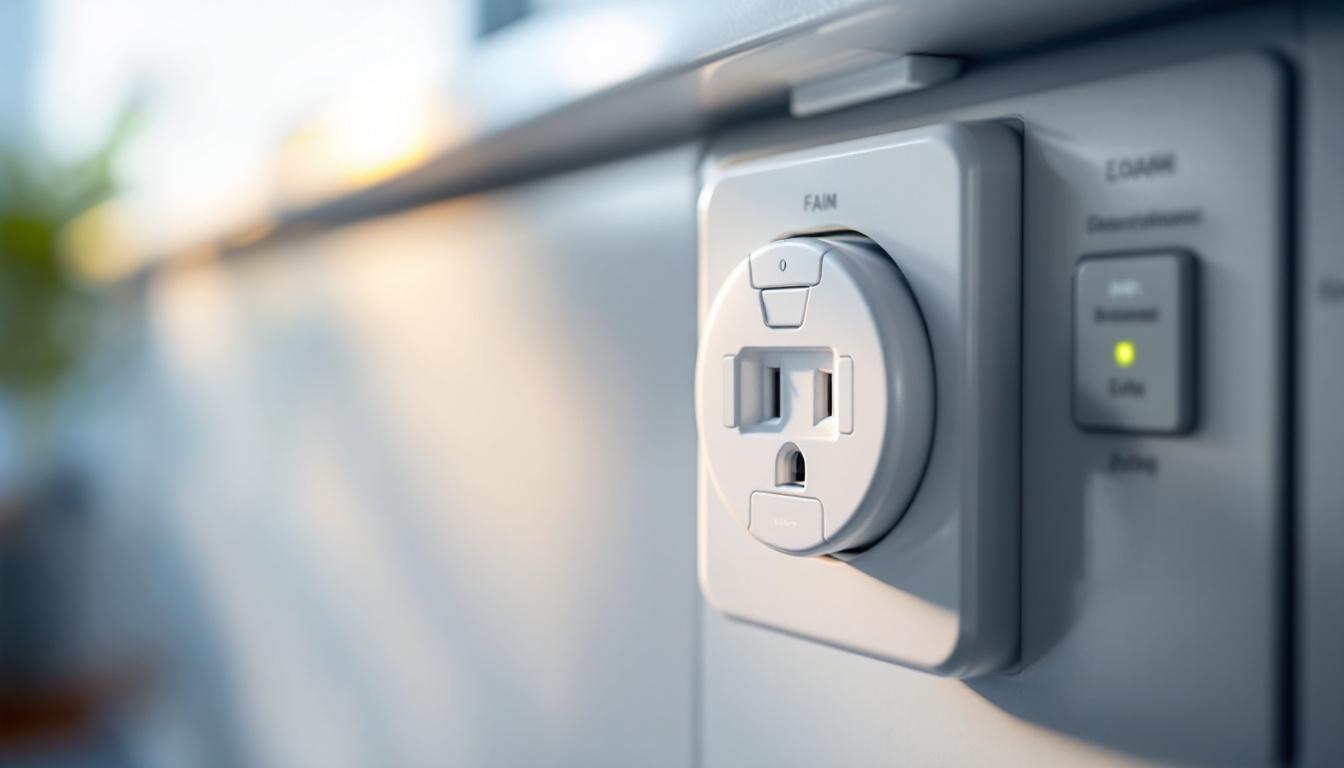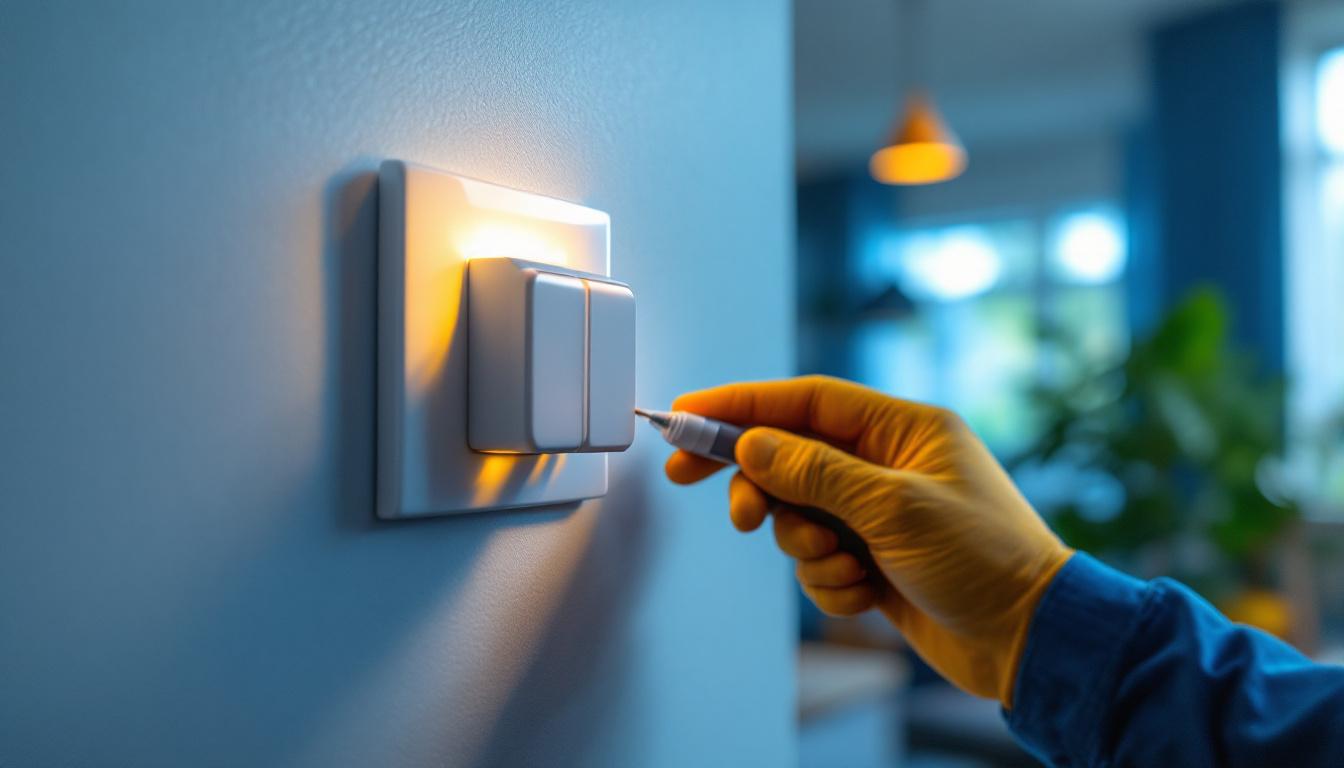
For lighting contractors, the scope of work often overlaps with electrical installations, especially when dealing with residential and commercial projects that include laundry areas. Ensuring that the electrical outlets designated for washers comply with local and national codes is critical—not only for safety but also for maintaining the integrity of the entire electrical system.
Washing machines are high-demand appliances that require dedicated circuits and properly rated outlets to operate safely and efficiently. Non-compliance can lead to electrical hazards such as overheating, short circuits, or even fires. Furthermore, improper installations can result in costly rework, project delays, and liability issues. The potential for damage extends beyond the immediate vicinity of the washer; it can affect surrounding appliances and even the structure of the home if not addressed properly. Therefore, understanding the specifications and requirements for these outlets is not just a matter of compliance but also a crucial aspect of safeguarding the entire electrical system.
While lighting contractors primarily focus on illumination systems, understanding the requirements for washer outlets is essential because these outlets often share panel space and wiring infrastructure. Additionally, many projects require contractors to coordinate with electricians or perform combined tasks, making knowledge of appliance outlet standards a valuable asset. This collaboration can lead to more efficient project execution, as contractors who are well-versed in electrical compliance can anticipate potential issues and address them proactively.
Moreover, lighting contractors who are knowledgeable about electrical outlet compliance can provide more comprehensive services, improve client trust, and reduce the risk of inspection failures. By demonstrating an understanding of the electrical requirements for washers, contractors can position themselves as experts in the field, enhancing their reputation and attracting more business. Furthermore, educating clients about the importance of proper outlet installation can lead to better decision-making regarding appliance purchases and home renovations, ultimately fostering long-term relationships built on reliability and professionalism.
The National Electrical Code (NEC) provides the foundational guidelines for electrical installations in the United States. Although local amendments may apply, the NEC is the primary reference for compliance.
According to the NEC, washing machines must be supplied by a dedicated branch circuit. This means the circuit should not serve any other outlets or appliances. Typically, a 120-volt, 15- or 20-amp circuit is required, depending on the washer’s specifications.
Lighting contractors should verify the appliance’s electrical rating before installation. For example, a high-efficiency washer with advanced features may require a 20-amp circuit to handle peak loads safely. It is also important to consider the age and type of the washing machine, as older models may have different power requirements compared to newer, energy-efficient models. Understanding these specifications can help prevent potential overloads, which could lead to circuit failures or even fire hazards.
The NEC mandates that the outlet for a washing machine be a grounded receptacle. This is usually a standard three-prong (grounding) outlet that matches the plug type of the washer. The outlet must be installed within a reasonable distance from the appliance to avoid the use of extension cords, which are prohibited for permanent connections.
Additionally, the outlet should be placed in an accessible location, typically behind the washer, but not in an area prone to water exposure. Lighting contractors should coordinate with plumbers and electricians to ensure the outlet’s location complies with both electrical and plumbing codes. Proper placement not only facilitates easy access for plugging and unplugging the appliance but also ensures that maintenance and repairs can be conducted without difficulty. Furthermore, it is advisable to consider the layout of the laundry space, ensuring that the outlet does not interfere with other appliances or impede movement within the area.
Ground-Fault Circuit Interrupter (GFCI) protection is a critical safety feature designed to prevent electrical shock, especially in wet areas. The NEC requires GFCI protection for outlets in laundry areas in many jurisdictions.
Lighting contractors must confirm whether GFCI protection is required for the washer outlet in their project’s location. While some older codes did not mandate GFCI for laundry outlets, modern standards increasingly require it due to safety concerns. The installation of GFCI outlets not only protects users from electrical shock but also enhances the overall safety of the home, particularly in areas where water and electricity may come into contact. Additionally, it is essential to regularly test GFCI outlets to ensure they are functioning correctly, as these devices can wear out over time or become less effective due to environmental factors.
Despite clear guidelines, lighting contractors often encounter challenges when installing or inspecting electrical outlets for washers. Understanding these challenges can help prevent mistakes and improve project outcomes.
Washer outlet installation often requires coordination between lighting contractors, electricians, and plumbers. Miscommunication can lead to improper outlet placement or inadequate circuit capacity.
For example, if the outlet is installed too close to water supply lines without proper protection, it can pose a safety hazard. Lighting contractors should engage in early project planning meetings to clarify responsibilities and ensure compliance. Effective communication is crucial; utilizing shared project management tools can facilitate real-time updates and collaborative problem-solving among trades. Additionally, creating a detailed site plan that outlines the location of all utilities can help prevent conflicts and streamline the installation process.
In retrofit scenarios, existing wiring may not meet current code requirements. Outlets might lack grounding, or circuits may be shared with other appliances, violating the dedicated circuit rule.
Lighting contractors must assess the existing electrical infrastructure carefully and recommend upgrades when necessary. This may include installing new circuits, upgrading outlets to grounded types, or adding GFCI protection. Furthermore, understanding the historical context of older buildings can be beneficial; many older structures may have unique wiring configurations that require specialized knowledge. Contractors should also be aware of local building codes and regulations that may affect the installation process, as these can vary significantly from one jurisdiction to another.
Modern washers come with varying electrical requirements. Some models may need 240-volt outlets, especially commercial or heavy-duty units, while most residential washers operate on 120 volts.
Lighting contractors should review the manufacturer’s installation instructions and electrical ratings before proceeding. Failure to match the outlet type and circuit rating can result in appliance damage or safety hazards. Additionally, it is important to consider future-proofing the installation; as technology evolves, homeowners may upgrade to newer, more energy-efficient washers that have different electrical needs. By anticipating these changes, contractors can design installations that accommodate potential upgrades, thereby enhancing the longevity and functionality of the electrical system.
Adhering to best practices ensures safety, compliance, and customer satisfaction. The following guidelines are essential for lighting contractors working with washer outlets.
Before installation, obtain the washer’s electrical specifications and installation manual. Confirm the required voltage, amperage, and plug type. This information guides the selection of circuit breakers, wiring, and outlet types.
Install a dedicated circuit for the washer outlet, sized according to the appliance’s electrical load. Use appropriately rated circuit breakers and wiring to handle the load safely.
Label the circuit clearly in the electrical panel to avoid confusion during maintenance or future renovations.
Install grounded receptacles that match the washer’s plug configuration. Where required, include GFCI protection to enhance safety in potentially wet laundry areas.
Test GFCI outlets after installation to ensure they function correctly.
Local amendments to the NEC may impose additional requirements. Always verify local codes and obtain necessary permits before installation.
Coordinate with electrical inspectors during and after installation to ensure compliance and avoid costly rework.
Maintain clear documentation of the electrical outlet installation, including circuit details, outlet type, and compliance measures. Communicate this information to clients and other contractors involved in the project.
As technology evolves, lighting contractors must stay informed about new developments that impact electrical outlet installations for washers.
Smart washers with Wi-Fi connectivity and energy monitoring features are becoming increasingly common. These appliances may have unique electrical requirements or benefits, such as demand response capabilities that reduce peak load on circuits.
Lighting contractors should consider how integrating smart home systems affects wiring and outlet placement, potentially requiring additional infrastructure like data cabling or specialized outlets.
Newer Ground-Fault Circuit Interrupter (GFCI) and Arc-Fault Circuit Interrupter (AFCI) devices offer enhanced protection and diagnostic capabilities. Some models provide self-testing features and remote monitoring, improving safety and maintenance.
Incorporating these advanced devices in washer outlet circuits can elevate safety standards and appeal to safety-conscious clients.
Energy codes and standards continue to evolve, emphasizing efficiency and safety. Lighting contractors should stay updated on changes to electrical codes that may affect circuit sizing, outlet types, and protection requirements for washers and other appliances.
Electrical outlet compliance for washers is a critical aspect of safe and effective electrical installations. For lighting contractors, understanding the relevant codes, appliance requirements, and best practices is essential to deliver quality work and ensure client satisfaction.
By staying informed about NEC requirements, coordinating effectively with other trades, and embracing emerging technologies, lighting contractors can confidently handle washer outlet installations and contribute to safer, more efficient electrical systems in residential and commercial settings.
Ultimately, knowledge and attention to detail in this area not only prevent hazards but also enhance the professional reputation of lighting contractors in an increasingly competitive market.
As you strive for compliance and excellence in your washer outlet installations, LumenWholesale is here to support your efforts with premium, spec-grade lighting products. Our wholesale prices ensure you’re getting the best value for your investment, and our commitment to quality means you can trust the reliability and performance of every product you purchase. With free shipping on bulk orders, LumenWholesale is your go-to source for lighting solutions that meet the highest industry standards. Elevate your next project by choosing Wholesale Lighting at the Best Value with LumenWholesale, where quality meets affordability and convenience.

Discover how electrical outlet switches can revolutionize your lighting contracting business.

Discover how home outside lights can transform your exterior spaces from ordinary to extraordinary.

Unlock the secrets of Type A bulbs with our comprehensive guide tailored for lighting contractors.

Unlock the essentials of fluorescent tube wiring in just five minutes with this concise guide tailored for lighting contractors.